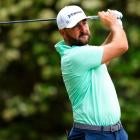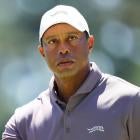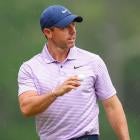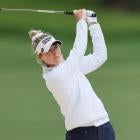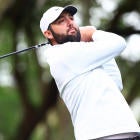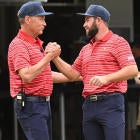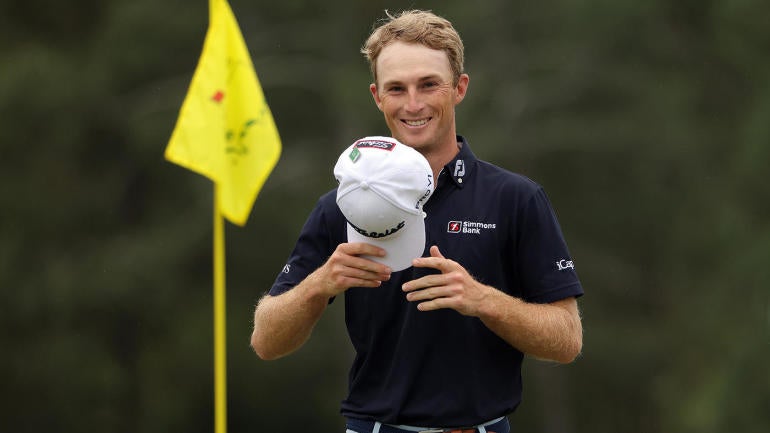
The 2024 Masters is about to begin, so it's time to ask the question: Who is going to be donning the green jacket on Sunday at Augusta National? There is a lot of golf to be played between now and then, but perhaps the best indicator of who will play well this week in Augusta, Georgia ... is who has played well there before.
So, who has historically been the best player at Augusta National? It's a fascinating question that has a variety of answers depending on the variables you want to consider, such as window of time, metrics and the importance of actually winning the golf tournament versus simply playing consistently great golf at the nation's most exquisite course.
Knowing that we could segment the data in so many different ways, let's look at a specific segment that I like to call, Best Player at Getting the Ball in the Hole in the Fewest Shots Compared to His Peers Over the Last Ten Years, or as it is more commonly known in golf circles: BPGBHFSCHPLTY.
Let's look at those last 10 years and build in the caveat that a golfer needed to play at least eight rounds to qualify, which excludes players like Tom Kim and Sahith Theegala, who both thrived in 2024 but have only played in one Masters.
Watch all four rounds of the 2024 Masters starting Thursday with Masters Live as we follow the best golfers in the world through Augusta National with Featured Groups, check in at the famed Amen Corner and see leaders round the turn on holes 15 & 16. Watch live on CBSSports.com, the CBS Sports App and Paramount+.
Strokes gained over last 10 Masters
| Rank | Golfer | Rounds | Strokes Gained | 2024 odds |
|---|---|---|---|---|
1 | Will Zalatoris | 8 | 3.50 | 35-1 |
2 | Jon Rahm | 28 | 2.84 | 12-1 |
3 | Jordan Spieth | 38 | 2.81 | 22-1 |
4 | Scottie Scheffler | 16 | 2.80 | 4-1 |
5 | Rory McIlroy | 36 | 2.46 | 10-1 |
6 | Justin Rose | 36 | 2.31 | 110-1 |
7 | Dustin Johnson | 32 | 2.29 | 35-1 |
8 | Rickie Fowler | 26 | 2.28 | 110-1 |
9 | Hideki Matsuyama | 38 | 2.25 | 24-1 |
10 | Collin Morikawa | 16 | 2.05 | 40-1 |
There are so many interesting takeaways from the list.
- Zalatoris has been unbelievably good at Augusta National. In two starts, he has finished T6 and 2nd. The sample size is extremely small, but it's impressive that he's over a half shot better than Rahm and Spieth.
- Speaking of those two, the Rahm or Spieth? conversation is a fascinating one. Rahm has never missed a cut, possesses a slightly better SG and has a green jacket ... but he's played 10 fewer rounds than Spieth, who also has a green jacket as well as the best scoring average of anyone in history with more than 30 rounds played at Augusta. Additionally, Spieth has six top fives in 10 appearances, but Rahm has never finished worse than 27th in seven starts (including five top 10s). They are both monsters at this golf course.
- And then there's Scottie. I don't put him in the Rahm/Spieth conversation because he only has four starts, but those four starts have been T10, Win, T18, T19. That's crazy good for anybody's first four Masters.
- Here's a crazy one: McIlroy ranks No. 7 all-time in Augusta National scoring (minimum 25 rounds) but only fifth in SG over the last 10 years on this list.
- Morikawa has been underrated at Augusta. In four starts, he has three top 18 finishes.
There are three players not included in this top 10 that have a case for best player of the last 10 years. Brooks Koepka, who ranks 11th at 1.96 strokes gained has a resume that includes two missed cuts and three top seven finishes in the last five years. Then there's Theegala (2.8 SG) and Kim (2.1 SG), who did not qualify as they only played one Masters each. Theegala, in particular, is intriguing; Augusta fits his profile (good iron player, prone to wildness off the tee).
So, does this answer our question of who in this year's field is the best player at Augusta National? Technically, yeah, it mostly does. It at least narrows the field by 90% or so. Past results do not always determine future success, though at Augusta, they are more predictive than at any other PGA Tour course.
That does not necessarily mean the exercise is predictive of this year's tournament winner.
For example: Brooks Koepka's ceiling of winning is higher than almost everyone on this list. Because of his two missed cuts, his baseline is lower than a Fowler or Rose, but nobody who follows golf would ever pick those two players in their current form over Koepka at a major championship.
So, rather than using this as a determinant, it's best used as an interpretive tool. It is by no means comprehensive. In golf, it is better to be on the extremes like Koepka (missed cuts and wins or near wins) than it is to be in the middle where you're T20 at every event. That might get a player on this list above, but unless it is eventually improved upon, it will never get a player into a green jacket.
Who will win the 2024 Masters, and which longshots will stun the golfing world? Visit SportsLine now to see the projected leaderboard, all from the model that's nailed 10 golf majors, including last year's Masters and Open Championship.













